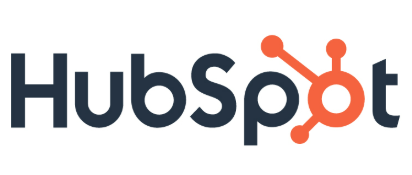In the competitive world of business, forging strong customer relationships is key to success. AI tools for Customer Relationship Management (CRM) are revolutionizing how businesses connect with their customers, offering insights and efficiencies that were previously unimaginable. However, as these tools become more ingrained in CRM strategies, there are concerns about whether they might be automating away the personal touch that is so crucial to building genuine connections. Are AI CRM tools truly enhancing customer relationships, or are they making interactions less personal? In this article, we’ll explore some of the best AI tools for CRM, providing detailed insights into their features, benefits, and the debates they spark.
Why AI Tools Are Transforming CRM
AI tools are reshaping CRM by providing predictive analytics, personalized customer experiences, and automated processes. Here’s why they are making a significant impact:
Predictive Analytics: AI-driven CRM tools offer predictive insights, helping businesses anticipate customer needs and behaviors.
Personalized Experiences: These tools enable businesses to deliver highly personalized experiences, enhancing customer satisfaction and loyalty.
Automation: AI tools automate routine CRM tasks, freeing up human resources to focus on building deeper relationships.
Data-Driven Decisions: By analyzing vast amounts of customer data, AI tools help businesses make informed decisions that drive growth.
Top AI Tools for CRM You Should Know
Let’s dive into some of the top AI tools that are transforming CRM. Each tool offers unique features tailored to different business needs.
1. Salesforce Einstein

Salesforce Einstein is an AI-powered CRM platform that enhances customer interactions with intelligent insights.
Features: Includes predictive analytics, automated data entry, and personalized recommendations. Einstein’s AI technology provides deep insights into customer behaviors and preferences.
Pricing: Pricing varies based on the Salesforce edition and additional AI features selected.
User Experience: Known for its seamless integration with Salesforce, making it ideal for businesses already using Salesforce CRM.
Why It Stands Out: Salesforce Einstein’s ability to integrate AI seamlessly into existing CRM processes makes it a powerful tool for enhancing customer interactions.
2. HubSpot CRM with AI Capabilities

HubSpot CRM offers AI-driven features that streamline customer management and engagement.
Features: Includes lead scoring, email tracking, and chatbots. HubSpot’s AI technology automates repetitive tasks and provides actionable insights.
Pricing: Offers a free version with basic features, with premium plans available for advanced capabilities.
User Experience: Its user-friendly interface and robust free version make it a popular choice for small to medium-sized businesses.
Why It Stands Out: HubSpot CRM’s combination of AI features and ease of use makes it accessible for businesses looking to enhance customer engagement without a steep learning curve.
3. Zoho CRM with Zia AI

Zoho CRM integrates Zia, an AI-powered assistant that enhances CRM functionalities with intelligent insights.
Features: Includes sales predictions, sentiment analysis, and workflow automation. Zia’s AI capabilities help businesses understand customer sentiments and improve sales strategies.
Pricing: Offers various subscription plans to suit different business needs, with a free trial available.
User Experience: Its intuitive interface and extensive customization options make it a versatile tool for businesses of all sizes.
Why It Stands Out: Zoho CRM’s integration with Zia AI provides businesses with powerful insights and automation capabilities to enhance customer relationships.
4. Microsoft Dynamics 365 AI

Microsoft Dynamics 365 offers AI-driven CRM solutions that enhance customer engagement and operational efficiency.
Features: Includes customer insights, predictive analytics, and automated workflows. Dynamics 365’s AI technology provides a comprehensive view of customer interactions and business performance.
Pricing: Flexible pricing based on modules and features selected.
User Experience: Its integration with other Microsoft products and services makes it a natural choice for businesses using the Microsoft ecosystem.
Why It Stands Out: Microsoft Dynamics 365’s integration capabilities and comprehensive feature set make it a powerful tool for businesses seeking to enhance CRM operations.
5. Freshworks CRM with Freddy AI

Freshworks CRM integrates Freddy AI to provide intelligent customer insights and automation.
Features: Includes lead scoring, deal insights, and customer segmentation. Freddy’s AI technology helps businesses prioritize leads and personalize customer interactions.
Pricing: Offers various pricing plans to accommodate different business needs, with a free trial available.
User Experience: Its ease of use and affordability make it a popular choice for businesses looking to integrate AI into their CRM processes.
Why It Stands Out: Freshworks CRM’s focus on affordability and AI-driven insights makes it an attractive option for small and medium-sized businesses.
Comparison and Analysis
When selecting the right AI CRM tool, consider your specific needs:
For Seamless Integration: Salesforce Einstein offers robust integration with existing Salesforce CRM processes.
For User-Friendly Experience: HubSpot CRM provides an intuitive interface and a powerful free version.
For Comprehensive Insights: Microsoft Dynamics 365 offers extensive AI-driven insights and integration capabilities.
Conclusion: Are AI Tools the Future of CRM?
AI tools are undoubtedly transforming CRM by providing innovative, data-driven solutions and enhancing customer relationships. While they improve efficiency and personalization, maintaining the human touch in customer interactions remains crucial. As AI technology continues to evolve, its role in CRM will expand, offering new opportunities for businesses to strengthen customer connections and drive growth.
